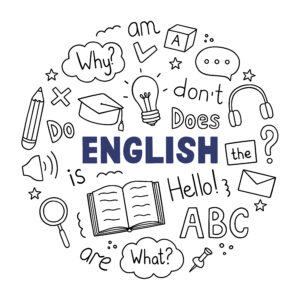Ever wondered how to express wishes, regrets, or hypothetical situations? Bring your sentences to life with subjunctive mood!
Studying and understanding grammar can sometimes feel overwhelming, even frustrating. The rules, the exceptions, and the constant need to be precise can make it seem like an endless puzzle. But have you ever paused for a moment and thought—what if I had expressed that thought exactly as it appeared in my mind? What if my words flowed effortlessly, capturing the depth and nuance of my ideas without hesitation?
That’s where the subjunctive mood comes in—it’s like a secret key to making your speech and writing sound more refined, more polished, and more natural. It helps you convey hypotheticals, wishes, doubts, and possibilities in a way that feels both elegant and effortless. After all, what’s better than sounding better? Absolutely nothing! The way we express ourselves shapes how others perceive us, and mastering the subtleties of language can give us an edge in communication. So why not take a moment to explore the subjunctive mood? It might just change the way you articulate your thoughts forever.
Definition
The subjunctive mood is used to express situations that are hypothetical, wished for, uncertain, or contrary to fact. Unlike the indicative mood, which is used for stating facts or asking questions, the subjunctive is employed to discuss conditions that are not real, wishes, or requests.
The use of subjunctive mood in a sentence is interesting and fun.
Examples of subjunctive mood:
- Wishes: I wish that he were here.
Here, “were” is used because it expresses a wish about a situation that is not true or currently possible.
- Hypotheticals: If I were you, I would study harder.
- Recommendations/suggestions: I suggest that he be on time.
The verb “be” is in its base form. signalling that it’s a recommendation or request.
- Necessity/requirement: It is essential that she attend the meeting
How to form the subjunctive mood
The subjunctive is different from the indicative mood because the verb form often does not change in the same way, especially when used with certain expressions.
- Regular verbs in the subjunctive mood:
For most verbs, the subjunctive form is the same as the base form of the verb, regardless of the subject. The verb does not add an -s for third-person singular subjects. This makes it a little tricky to identify, as the verb form remains the same across different subjects.
- Example: She suggests that he go to the store.
- It is important that she finish the project.
- The verb “be” in the subjunctive mood:
The verb “be’ has unique forms in the subjunctive mood. For all subjects, you use “be” for the present tense and “were” for the past tense.
- Present subjunctive: It is important that she be here.
- Past subjunctive: If I were you, I would call her.
You must be wondering, what part of these above sentences lets us use the base form without any problem? If you let yourself wonder more, you will see the phrases used at the beginning of the sentences. These are specific expressions and phrases that commonly signal the use of the subjunctive.
Expressions of suggestion, request, or recommendation:
- It is recommended that (e.g., It is recommended that she be on time.)
- I suggest that (e.g., I suggest that he leave immediately.)
- I advise that (e.g., I advise that you take the job.)
- It is important that (e.g., It is important that she finish the project.)
Expressions of necessity or requirement:
- It is necessary that (e.g., It is necessary that he attend the meeting.)
- It is essential that (e.g., It is essential that we be on time.)
- It is crucial that (e.g., It is crucial that he submit his report by Friday.)
Hypotheticals:
- If I were you (e.g., If I were you, I would not do that.)
- If only (e.g., If only I were in Paris now.)
- I wish that (e.g., I wish I were better at playing the piano.)
Wishes or desires:
- I wish that (e.g., I wish that he were here.)
- If only (e.g., If only they were not so far away.)
When to use the subjunctive mood? You already have the answer to that. Don’t you? We use it when expressing hypothetical or unreal conditions, making requests, suggestions, or recommendations and expressing wishes or regrets.
Examples: If she were here, we could discuss this in person.
I suggest that she study for the test.
I wish I were more confident.
It is vital that he arrive on time.
If only he were here now!
…
Did you get why you should care?

